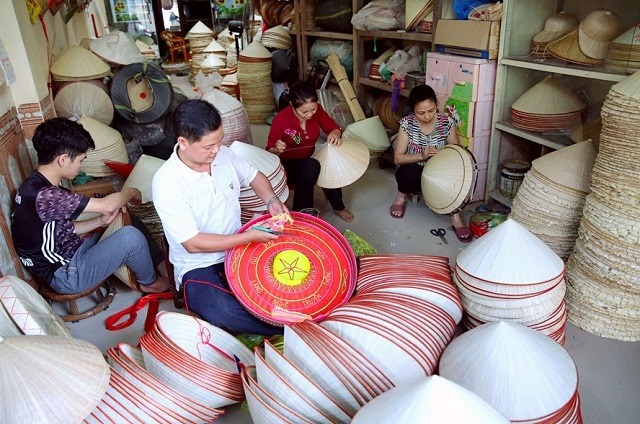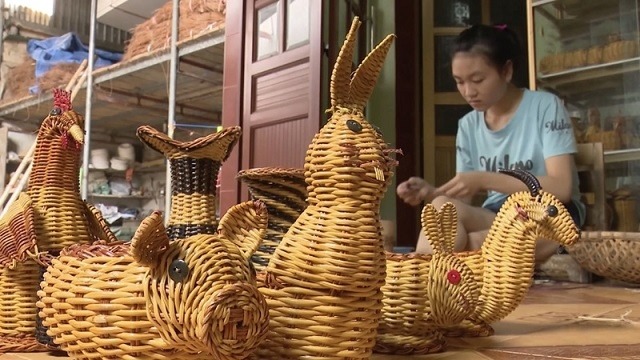Developing traditional craft villages from the cooperative model
The rural craft villages of Phu Tho province are developing more and more diversified, contributing to the restructuring of the rural economy in a positive direction, creating more jobs, increasing incomes, exploiting the province's potential and advantages, preserving and promoting cultural identity, promote sustainable new rural construction. The activities of the craft village are maintaining jobs for over 15,000 workers, generating an income of nearly 1,300 billion VND per year.

In particular, in some craft villages, cooperative models have been formed to focus resources on capital, people, knowledge and experience to develop products of craft villages.
A number of products of the craft village have been created and registered for collective trademark protection, helping to improve the product business of the craft village. Products such as rice noodles (Hung Lo rice noodle cooperative, Viet Tri), soy sauce (Duc My soy sauce cooperative, Lam Thao), green tea (Phu Thinh tea production and processing cooperative), and red carp (Cooperative). Red carp (Thuy Tram, Cam Khe) increasingly asserted its value, and the consumption market was continuously expanded.
Creating a driving force for sustainable poverty reduction
It can be seen that cooperatives have developed more and more diversely, in accordance with the needs and developmental level of the craft village, consolidated, renewed and improved operational efficiency.

Through the cooperative's activities, many new technological advances have been transferred and applied in production, and a number of models have been formed with obvious economic benefits; contributing to increasing labor productivity... At the same time, reducing production costs reduces post-harvest losses, improves product quality, and enhances competitiveness in the market.
Mr. Nguyen Thanh Hai, Vice Chairman of Phu Tho Provincial People's Committee assessed that, in the process of hunger eradication and poverty reduction associated with craft village development, the province will focus on consulting the establishment of cooperatives in craft villages, assisting cooperatives in formulating plans. production and business in order to create a production process along the value chain from designing and improving product designs to well organizing the production and consumption process in a chain link, helping to improve quality and price. product value, to be competitive in the market.
Developing cooperatives in craft villages creates stable jobs, increases the incomes of cooperative members and workers, creates motivation for each household to work, and strengthens linkages to promote craft village production, development and improvement of efficiency. collective economic results, cooperatives.
At the same time, improve the quality and value of craft village products by participating in the OCOP Program. In particular, focus on promoting the power and role of the community in preserving and developing traditional local products, forming a clean and safe agricultural production area, and high-tech agriculture associated with product value chains.
"This will contribute to economic restructuring in rural areas, increase value and income for producers, and contribute to the successful implementation of the province's goal of hunger eradication and poverty reduction," he said. Nguyen Thanh Hai said.
In fact, it is difficult to establish cooperatives in craft villages, and for cooperatives to operate effectively and promote the role of "midwives" in production and product consumption is even more difficult.
Especially in the process of operation, it requires the heads of cooperatives to be quick, grasp the rules of the market to invest in machinery, change the direction of production, and improve the quality and design of products accordingly. ensure competitiveness with other products of the same category.
Therefore, in order for the cooperative to develop well in the craft village, it is necessary to have the cooperation and unanimity of its members and the support of the authorities at all levels. Thus, the role of cooperatives in hunger eradication and poverty alleviation in the new localities can be promoted effectively and sustainably.



